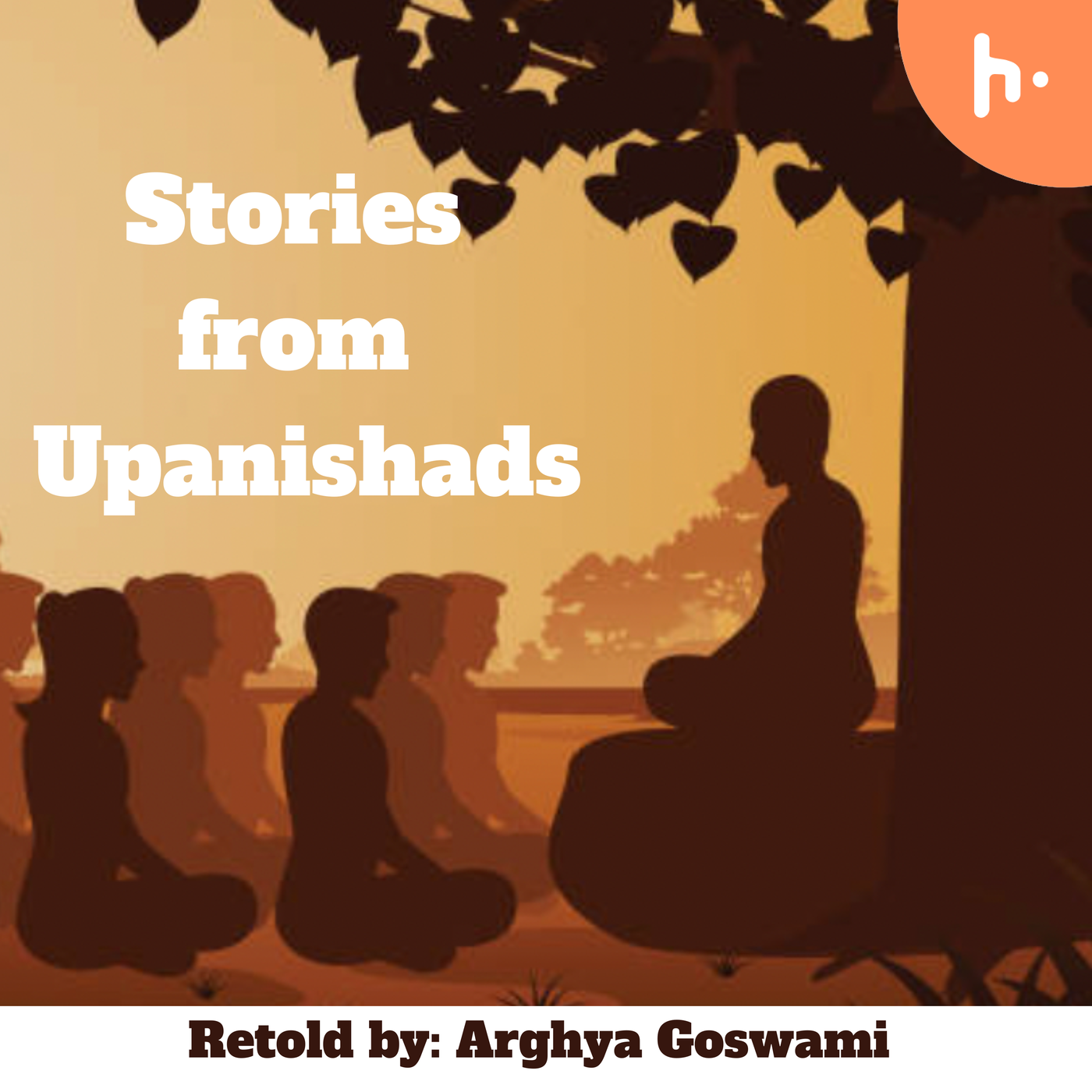Episode 11 - Yagnavalkya in King Janaka's Symposium
Description
Dear listeners, from the last 3 episodes of my podcast, you have been listening to Yagnavalkya’s debates in the King Janaka’s Symposium. You heard the debates of Ashwala, Aartbhaaga with Yagnavalkya in part 1, then followed by debates of Bhujyu, Usasta and Kahola with Yagnavalkya in part 2. Yagnavalkya was almost declared as a winner in the debates when he was challenged by Gargi Vaachaknavi in part 3, however after listening to his philosophies on Brahman, she decided that she must admit that Yagnavalkya was the greatest scholar in the symposium and no one can think of defeating him in knowledge on Brahman. Yagnavalkya was the undisputed winner at the symposium and left with the prize of thousand cows with ten gold coins.
Although Yagnavalkya’s debates in the symposium had ended with this victory and announcement of Gargi as he being the greatest knower of Brahman, her open challenge was not liked by many!
One such scholar was Vidagdha, son of Saakala. After the symposium was over, he confronted Yagnavalkya and and him -
“Yagnavalkya, so far you have been impressive with your knowledge and philosophies on Brahman. Can you answer my questions?”
Yagnavalkya smiled and nodded his headed. This challenge was sudden and he was not expecting anyone to debate him after Gargi’s open announcement. However, ego played a bigger role!
“How many gods are there?” Questioned Vidagdha.
Friends, before Yagnavalkya answers to the question asked, I would like to deviate a bit and tell you a story. This is on Nivid mantras. Once devas wanted to perform a complex yagna or sacrifice. But the yagna hid himself from them. Since there was no other way out devas decided to perform a simpler fire sacrifice. They started reciting Nivid Mantras during the sacrifice. As they were nearing the end of the sacrifice, they realised that they could remember the steps of the complex Yagna. Eventually, their sacrifice was successful.
Nivids are named after Devas or gods. They indicate Viswadevas, and present the number of Vedic gods in form of a riddle as it says the number of Devas or gods is 33 or 303 or 3003. Many modern indologists such as Dr.B.C.Sidharth of Birla Science Institute believe this to be an astronomical unit. As per him, each progression in this arithmetic sequence adds a step of refinement to estimate the length of a year. For instance the Lunar cycle provides a measure of month, however please note that a year is more than such 12 month units. In Medieval times, this was resolved by introduction of leap year. However in Ancient times, this issue was synchronised with lunar month counts to equinoxes. So intercalary or extra days where added after a fixed count of months. 33 intercalary days approximately were added in a year so that it would measure 365 days and 303 intercalary days would add to a year to measure 365.2421. In Rigveda, Sage Vishwamitra has given the number of Gods to be 3339 which is actually an addition of 33+303+3003. This number when considered as the number of intercalary days gives the average year length to be 365.2424.
Now let’s listen to Yagnavalkya’s response. He said boldly “As many as are indicated in Nivid Mantras of Viswadevas that is 303 and 3003.
Vidagdha said - “Very well! Then answer my next question…how many gods exactly are there Yagnavalkya?”
Yagnavalkya said “33 gods”.
“Oh, okay, then tell me how many gods exactly are there?” Again asked Vidagdha.
Yagnavalkya again replied - “6”
“Oh ho! Now you are changing the number again, so I am asking you again tell me how many gods are exactly there, Yagnavalkya?”
Now Yagnavalkya smiled and said “3”
Vidagdha again asked the same question and now Yaganvalkya replied “2”. Vidagdha continued to ask the same question again and now Yagnavalkya relied “1 and half”. Now visually irritated Vidagdha asked him the same question again as Yagnavalkya was changing the response each time.
This time Yagnavalky
More Episodes
Today's story is taken from Maitreya Upanishad. This story is featured in chapter 1 of the Upanishad. This chapter describes the dialogue between the great ascetic king Brihaadratha from the Ikshvaaku dynasty or Solar dynasty and Sage Saakaayana.
Please like, share, subscribe and download my...
Published 09/23/23
Published 09/23/23
The part 2 of Maandukya Upanishad deals with "AUM". It describes verses 8-12 from the Upanishad. It tells us about "AUM", how do you pronounce it? What happens when you chant "AUM" and many other secrets lying hidden in the syllable "AUM"?
How it is connected to Viraat Purush, Hiraanyagarbha,...
Published 09/01/23


